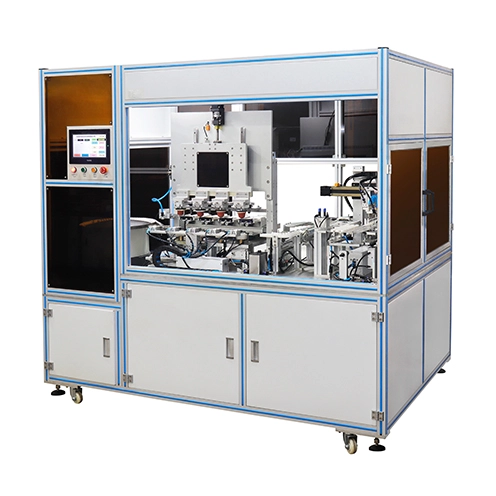Struggling to achieve vibrant, multi-color prints on irregular surfaces? Four-color pad printing machines deliver professional results where other methods fail.
Four-color pad printing machines precisely transfer full-color designs onto 2D and 3D objects using silicone pads, offering unmatched versatility across plastics, metals, glass, and ceramics. This CMYK-based process creates photorealistic prints without screen printing's limitations.
With their ability to handle complex designs on virtually any surface, these machines are transforming product decoration across industries. Here's why they're essential:
True color reproduction using CMYK process colors
Consistent registration across multiple print stations
Adaptability from small medical devices to automotive parts
Ever needed photorealistic printing on curved or textured items? Traditional methods can't compete with four-color pad printing's capabilities.
These machines use four separate print stations (cyan, magenta, yellow, black) that sequentially transfer ink to a silicone pad, which then deposits the complete image onto the product with micron-level precision. The pad's flexibility ensures perfect contact across any contour.
The step-by-step process:
Ink application: Each color station applies its ink to a cliché plate
Image pickup: Silicone pads collect individual colors in perfect registration
Transfer: The composite image prints onto the product in one motion
Curing: Optional UV or heat drying ensures durability
Key advantages over alternatives:
✅ Prints on concave/convex surfaces
✅ Handles textures screen printing can't
✅ Achieves 0.1mm registration accuracy

Why choose four-color pad printing when other multi-color options exist? The operational advantages are game-changing.
The four color pad printing machine delivers photorealistic quality with faster changeovers, lower waste, and better durability than screen or digital printing for 3D objects - all while maintaining competitive speeds up to 2,000 cycles/hour.
Comparative advantages:
| Feature | 4-Color Pad Printing | Screen Printing | Digital Printing |
|---|---|---|---|
| Surface Adaptability | Excellent (3D shapes) | Flat only | Limited 3D |
| Color Registration | ±0.1mm | ±0.3mm | N/A |
| Setup Time | 15-30 minutes | 1-2 hours | Instant |
| Ink Durability | Industrial-grade | Medium | Variable |
Real-world performance examples:
Medical device makers achieve FDA-compliant markings
Automotive suppliers print color-coded controls
Electronics firms brand curved control panels
Selecting equipment from leading pad printing manufacturers is overwhelming - what specifications actually impact your production?
Prioritize maximum print area, automation level, and registration accuracy based on your products' size, volume, and quality requirements - Haover's modular systems grow with your needs.
Critical selection criteria:
Small parts (<50mm): HVP-50C
Medium (50-150mm): HVP-150C
Large (>150mm): HVP-300C
Prototyping: Manual models
1,000-5,000/day: Semi-automatic
5,000+/day: Fully automatic with robotics
Vision systems for 100% quality control
Integrated UV curing stations
Climate-controlled ink management
Industry-specific recommendations:
Medical: Choose models with cleanroom compatibility
Automotive: Opt for oil-resistant ink systems
Electronics: Prioritize ±0.05mm registration
Where is CMYK pad printing making the biggest impact? The applications might surprise you.
From medical implants to smartwatch bezels, four-color pad printing enables full-color branding and functional markings on materials other decoration methods can't handle reliably.
Breakthrough applications by sector:
Surgical tool color-coding
Implant size/type markings
Diagnostic device interfaces
Wearable device trim
Bluetooth speaker grilles
VR headset adjustments
Full-color logo golf balls
Gradient-printed pens
Branded multi-tools
Emerging uses:
IOT sensors: Printing circuitry on 3D surfaces
Aerospace: Part identification on curved components
Housewares: Decorative finishes on appliances
Four-color pad printing machines from haover solve the toughest product decoration challenges, combining photorealistic quality with unmatched surface adaptability - making them indispensable for modern manufacturing.


